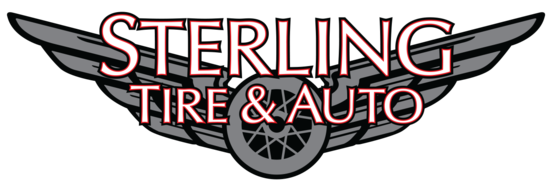Power Steering Service in Sterling Heights
April 30, 2020
Most Sterling Heights drivers are too young to remember life before power steering - cranking those great big steering wheels! It was a pretty good workout. Now power steering is standard. Let's look at how it works. The heart of any power steering system is its pump. The pump pressurizes the power steering fluid that provides assist for steering. Most pumps are driven by a belt that is run by the engine; a few are electrically powered. A high-pressure hose passes fluid from the pump to the steering gear. A low pressure hose returns the fluid back to the pump.
These hoses can develop leaks, so it is a good idea for Sterling Heights drivers to have them inspected at every oil change. Low fluid can damage the power steering pump. That is why power steering fluid level is on the checklist for a full-service oil change. The fluid needs to be compatible with the hoses and seals, so check your owner's manual for the right type - or just ask your friendly and knowledgeable pros at Sterling Tire & Auto in Sterling Heights.
The fluid cleans, cools and lubricates the power steering system. It breaks down as the years go by and collects unwanted moisture, so Sterling Heights drivers need to replace it from time to time. Many vehicle manufacturers specify power steering service intervals. Unfortunately, this important service is sometimes left off the car maintenance schedule for many of us. So, when in doubt, every 25,000 miles/40,000 km or two years is a good fallback. Your technician at Sterling Tire & Auto will use a detergent to clean the system, flush out the old fluid and replace it with the good stuff.
Here are some warning signs of trouble with your power steering: It's harder to turn the wheel, there's erratic power assist, you hear loud whining coming from the pump (which may be difficult to hear over the loud whining coming from the backseat), you have to top-off the fluid frequently, or you hear squealing belts. Remember to never hold the steering wheel to the far right or left for more than a few seconds at a time. That will wear out your power steering pump quickly.
Other steering components can be bent or damaged from wear or hard knocks: ball-joint, idler-arm, steering-gear, steering-knuckle and tie rod to name a few. Warning signs here are steering play, wandering, uneven tire wear and an off-center steering wheel. An annual alignment check at Sterling Tire & Auto in Sterling Heights will reveal bent or damaged steering components.
Most SUV's, pick-ups and rear-wheel-drive cars need regular front-wheel-bearing service.
The bearings should be cleaned and inspected. If they are excessively worn, they need to be replaced. The bearings are then repacked in clean grease. The team at Sterling Tire & Auto also recommends the wheel-seal be replaced when the bearings are serviced. Like everything else, check your owners' manual maintenance schedule. It's usually required around every two years or 40,000 miles/64,000 km. If you drive through water in the Sterling Heights area, the bearings will need service more often.
Sterling Tire & Auto
34701 Van Dyke Rd
Sterling Heights, Michigan 48312
586-264-7775
Need Service?
More articles from Sterling Tire & Auto

Rumble from Down Under (Muffler Replacement)
February 15, 2026
Weve all noticed them at one time or another on the street: a car or truck that drives by and the deep roar from their exhaust system sounds like a drag racer on the line. But what happens when that rumble is coming from under YOUR vehicle? Well, it could be a sign your muffler needs attention. ... More

Go with the Flow (MAF Sensor Replacement)
February 8, 2026
If your vehicle has an internal combustion engine, it depends on two things to make propulsion power for you to be able to motor on down the road: fuel and air. The engine mixes the two in just the right proportion so that they can be ignited, creating a series of tiny explosions that are coordi... More

10 Things That Are Lowering Your Fuel Economy
February 1, 2026
Regardless of whatever current gas prices may be, if you could use less gas, wouldnt you? Well, here are 10 things that are robbing you of better fuel economy that you can change for the better: Not enough air in your tires. Underinflated tires have a smaller rolling diameter and more res... More








